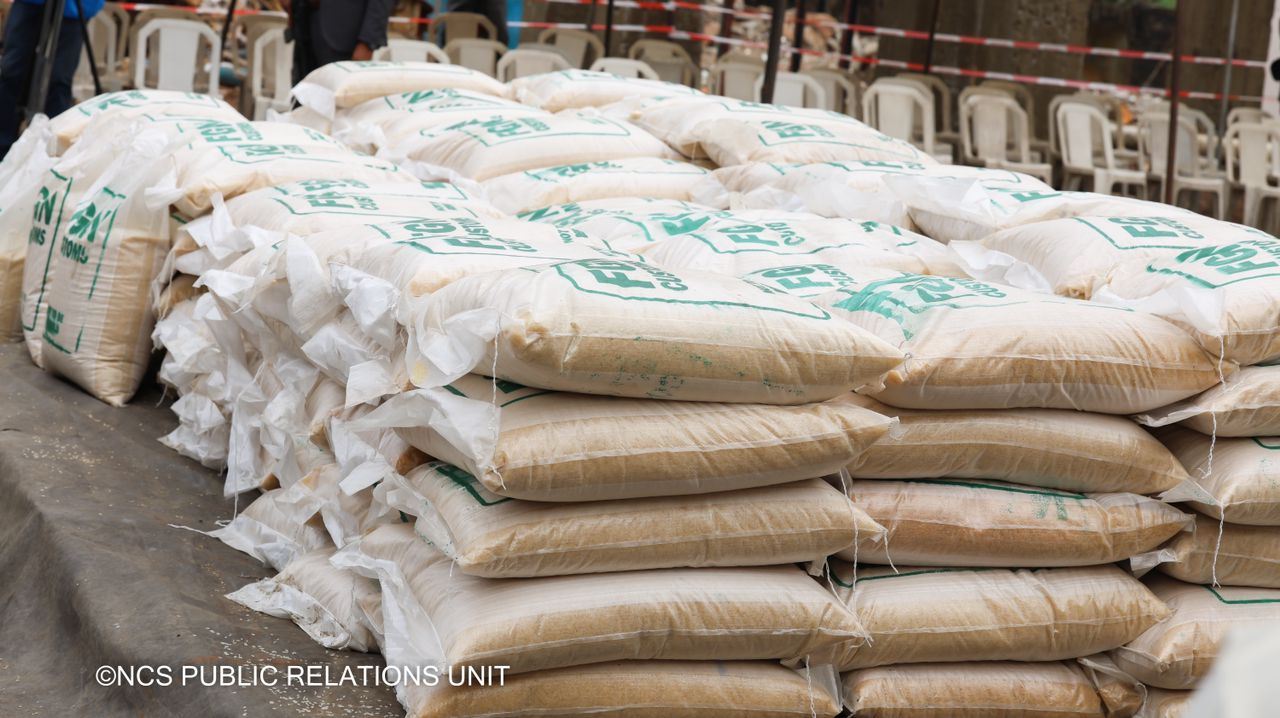EXCLUSIVE : First Husked Rice Laden Vessel Berth At Lagos Port Complex
By Roland Ekama
Barely six months the federal government suspended tax and import duties on maize, wheat, brown rice and other Imported edible commodities, DAILYFOCUS NIGERIA can authoritatively revealed that vessel laden with husked rice has began to arrive the nation’s seaports.
DAILYFOCUS NIGERIA, had reported exclusively, that multiple vessels laden with maize had flooded the Lagos seaports of Tin Can Island Port and Lagos Ports Complex respectively.
Since the introduction of the new policy to encourage food sufficiency , vessels laden with maize have continued to dominate importation of the aforementioned items .
But our correspondent confirmed the arrival of a vessel laden with brown rice over the weekend at ENL Consortium Limited, Lagos Port Complex (LPC).
Vessel identified as MV SINOWAY LILY is currently at berth 14 and was said to have arrived the port terminal on the 23rd of December 2024, precisely 08: 35 hours
The brown rice are already packaged in bags
and dockworkers at the terminal have commenced discharging of the commodities aboard the vessel .
- Advertisement -
The commodities originated from Thailand to Nigeria , multiple sources confirmed to our correspondent, weekend.
Recall that the Nigeria Customs Service (NCS) had announced that President Bola Tinubu has approved a Zero Per cent Duty Rate (0%) and Value Added Tax (VAT) exemption on selected basic food items.
Customs revealed that the approval was communicated through the Minister of Finance and Coordinating Minister of the Economy, Olawale Edun.
Companies importing husked brown rice, grain sorghum, or millet must own a milling plant with a capacity of at least 100 tons per day, operated for at least four years, and possess adequate farmland for cultivation.
Those importing maize, wheat, or beans must be agricultural companies with sufficient farmland or feed mills/agro-processing companies with an out-grower network.
Part of the guidelines stipulates also stated that at least 75 per cent of imported items must be sold through recognized commodities exchanges, with all transactions and storage recorded. Companies must maintain comprehensive records, subject to government verification.
Failure to comply with import authorizations will result in the loss of waivers and the requirement to pay VAT, levies, and import duties. This penalty also applies if the items are exported in their original or processed form outside Nigeria.
With the arrival of the first vessel laden with brown rice is an indication that more ships may flood the seaports with the commodities, which may possibly crash the cost of rice in the coming weeks.




Comments are closed.